
BEHAVIOUR
Scope & Guideline
Pioneering Research in Behavioral Insights
Introduction
Aims and Scopes
- Animal Communication and Signaling:
The journal frequently publishes studies exploring the mechanisms and functions of communication among various species, examining aspects such as vocalizations, visual displays, and chemical signaling. - Behavioral Ecology and Evolution:
Research on how ecological factors influence behavior and the evolutionary implications of these behaviors is a core focus. This includes studies on mating systems, foraging strategies, and predator-prey interactions. - Social Behavior and Structure:
There is a significant emphasis on the social dynamics within and between species, including cooperation, competition, and social hierarchies, which are critical for understanding group living. - Individual Differences and Personality:
The journal highlights the importance of individual variability in behavior, including personality traits and behavioral syndromes, providing insights into how these factors affect social interactions and survival. - Impact of Environment on Behavior:
Research examining how environmental changes, such as urbanization and climate change, affect behavioral adaptations is increasingly prevalent, showcasing the journal's relevance to contemporary ecological issues. - Comparative Behavioral Studies:
The journal publishes comparative studies across different species, aiding in understanding the evolutionary and ecological contexts of behavior.
Trending and Emerging
- Social Learning and Innovation:
There is an increasing interest in how animals learn from one another and innovate within their environments, highlighting the cognitive aspects of behavior in social species. - Impact of Urbanization on Wildlife Behavior:
Research focusing on how urban environments affect animal behavior has surged, reflecting growing concerns about biodiversity and conservation in increasingly urbanized landscapes. - Behavioral Plasticity and Adaptation:
Studies examining how behaviors adapt to changing environments and the plasticity of these behaviors are trending, particularly in light of climate change and habitat alteration. - Interdisciplinary Approaches to Behavior:
Emerging themes involve interdisciplinary methodologies, integrating insights from psychology, neuroscience, and ecology to deepen the understanding of behavior. - Ethological Perspectives on Welfare and Conservation:
There is a marked increase in research that applies ethological principles to animal welfare and conservation efforts, emphasizing the importance of understanding natural behaviors in these contexts.
Declining or Waning
- Clinical Ethology:
Although there was a surge in publications regarding clinical ethology and animal welfare, the frequency of such studies has decreased, possibly indicating a shift back towards more traditional behavioral studies. - Anthropomorphism in Animal Behavior:
Research that anthropomorphizes animal behavior, often viewed critically in scientific circles, has seen a reduction, as the field moves towards more rigorous, objective analyses of behavior. - Historical and Anecdotal Observations:
The reliance on anecdotal evidence and historical approaches to behavior has waned, with a stronger emphasis now placed on empirical data and experimental methodologies. - Stereotypic and Abnormal Behaviors in Captive Animals:
While still relevant, the focus on stereotypic behaviors in captive settings appears to have lessened, possibly as more attention is directed towards broader behavioral ecology and naturalistic studies.
Similar Journals
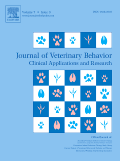
Journal of Veterinary Behavior-Clinical Applications and Research
Shaping the future of veterinary behavior science.The Journal of Veterinary Behavior-Clinical Applications and Research, published by Elsevier Science Inc, is a premier outlet for original research and clinical studies in the field of veterinary behavior. With an ISSN of 1558-7878 and an E-ISSN of 1878-7517, this journal serves as an essential resource for veterinarians, animal behaviorists, and researchers dedicated to understanding and improving animal welfare through behavioral science. The journal holds a respectable Q2 ranking in the Veterinary (miscellaneous) category as of 2023, attesting to its significant impact in the field. Although it does not offer open access options, it fosters a community of professionals who are passionate about advancing the application of behavioral research in clinical settings. With coverage extending from 2006 to 2024, the journal aims to disseminate valuable insights that contribute to effective behavior management and intervention strategies, ultimately enhancing the relationship between animals and their caregivers.

BEHAVIORAL ECOLOGY AND SOCIOBIOLOGY
Exploring the Intricacies of Behavior and EcologyBehavioral Ecology and Sociobiology is a peer-reviewed journal published by Springer, focusing on the nuanced interactions between animal behavior and ecological factors. With an impressive history dating back to 1976, the journal has made significant contributions to the field, maintaining a prominent position in the top quartile (Q1) for both Animal Science and Zoology, as well as Ecology, Evolution, Behavior, and Systematics, as of 2023. Its high Scopus rank underscores its influence, being recognized in the 79th percentile for Animal Science and the 68th percentile for Ecology. This journal serves as an essential platform for researchers, professionals, and students interested in exploring the evolutionary implications of social structures and behavioral traits in various species. Although it does not currently operate under an open-access model, its rigorous peer-review process ensures that published studies meet high academic standards. With a vast array of innovative articles spanning decades, Behavioral Ecology and Sociobiology remains a vital resource for advancing our understanding of the complex interplay between behavior and ecological dynamics.
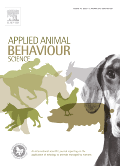
APPLIED ANIMAL BEHAVIOUR SCIENCE
Inspiring excellence in applied animal behavior research.APPLIED ANIMAL BEHAVIOUR SCIENCE, published by Elsevier, stands as a leading academic journal in the domains of Animal Science and Zoology, with a commendable impact factor reflecting its significance in the field. Established in 1984, this esteemed journal is committed to disseminating cutting-edge research that enhances understanding of animal behavior, welfare, and management practices. With an H-Index indicative of its influence and a ranking of #85/490 in Scopus for Agricultural and Biological Sciences, this journal is a pivotal resource for experts focusing on both companion and food animals. While it currently operates under a subscription model, it continues to serve as a robust platform for stimulating discourse and advancing knowledge through high-quality peer-reviewed articles. The journal's reach is global, and it plays a vital role in guiding future research and policy in animal behavior science across various disciplines.

ACTA ETHOLOGICA
Fostering Collaboration in the Study of Animal EcologyACTA ETHOLOGICA, published by Springer Heidelberg, is a leading journal in the fields of Animal Science and Zoology, as well as Ecology, Evolution, Behavior, and Systematics. With an ISSN of 0873-9749 and an E-ISSN of 1437-9546, this journal has established itself as a notable platform for innovative research and review articles since its inception in 1998. As of 2023, it holds a Category Quartile of Q3 in both its primary categories, showcasing its commitment to advancing knowledge within these scientific domains. The journal aims to facilitate the dissemination of cutting-edge research on animal behavior and ecology, fostering collaboration among researchers, professionals, and students. While it does not currently offer Open Access options, ACTA ETHOLOGICA remains crucial for those looking to stay informed about the latest developments and trends in ethology. For inquiries, the journal's editorial office is located at Tiergartenstraße 17, D-69121 Heidelberg, Germany.
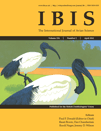
IBIS
Uncovering the secrets of ecology and evolution.IBIS, published by WILEY, stands as a prestigious journal in the field of animal science, zoology, and ecology since its inception in 1859. With a focus on innovative research that informs the scientific community on ecological dynamics, behavioral studies, and conservation strategies, IBIS fills a critical niche for researchers, professionals, and students alike. The journal is recognized for its robust impact factor and commands a Q1 ranking in three key categories as of 2023, demonstrating its influence and reach within the global academic landscape, particularly in Animal Science, Ecology, Evolution, Behavior and Systematics, and Nature and Landscape Conservation. Although not an open-access publication, its rigorous peer-review process ensures high-quality contributions that advance knowledge in these vital areas. Through interdisciplinary collaboration and comprehensive coverage of cutting-edge topics, IBIS remains an essential resource for those striving to understand and protect our natural world.
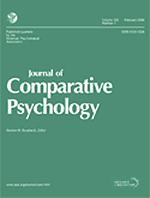
JOURNAL OF COMPARATIVE PSYCHOLOGY
Championing Rigorous Research in Behavioral ScienceJOURNAL OF COMPARATIVE PSYCHOLOGY is a prestigious academic journal published by the American Psychological Association, dedicated to advancing the understanding of behavioral processes across diverse species. With its ISSN 0735-7036 and E-ISSN 1939-2087, the journal has been a cornerstone of comparative psychology research since its inception in 1983. It primarily caters to the fields of ecology, evolution, and behavior, ranking impressively in the Q2 quartile in the category of Ecology, Evolution, Behavior and Systematics, and Q3 in the miscellaneous Psychology category as of 2023. This journal serves as a vital platform for disseminating high-quality research, addressing both fundamental questions and applied issues in systematic studies of behavior across species. Although not open access, its rich repository of research articles, meta-analyses, and reviews makes it an indispensable resource for researchers, practitioners, and students striving to deepen their knowledge and foster innovation in comparative psychological studies. With a commitment to rigorous peer review and scholarly excellence, the JOURNAL OF COMPARATIVE PSYCHOLOGY is a key player in shaping the discourse within its field and driving future research.
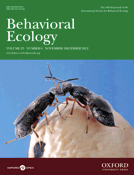
BEHAVIORAL ECOLOGY
Fostering Innovation in Understanding Animal Behavior and EcologyBehavioral Ecology, published by Oxford University Press Inc, stands as a premier journal in the field, bridging the disciplines of animal science and ecology. With an impressive impact factor reflecting its rigorous scholarship, this journal ranks in the top quartile (Q1) for both Animal Science and Zoology as well as Ecology, Evolution, Behavior and Systematics, positioning it among the elite academic publications. Since its inception in 1990, Behavioral Ecology has served as a vital platform for cutting-edge research that explores the ecological and evolutionary implications of animal behavior, catering to a diverse audience of researchers, professionals, and students. The journal's commitment to high-quality peer-reviewed articles ensures that it remains a key resource for advancing knowledge in the field. Readers can access the journal through institutional subscriptions for comprehensive insights that drive ongoing research and discussion.
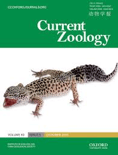
Current Zoology
Leading the Charge in Open-Access Zoological StudiesCurrent Zoology, published by Oxford University Press, is a leading open-access journal dedicated to advancing the field of zoology and animal science since its establishment in 2009. With an impressive Q1 ranking in Animal Science and Zoology as of 2023, the journal maintains a prominent position within the academic community, supported by a ranking of #138 out of 490 in Scopus. Current Zoology serves as a vital platform for researchers, professionals, and students, showcasing high-quality research that spans a broad array of topics within the domain of zoology. This journal is characterized by its rigorous peer-review process, ensuring the dissemination of credible and impactful findings that contribute to the understanding of animal biology and conservation efforts. The open-access model enhances accessibility, allowing a wider audience to engage with the pivotal research being conducted in this dynamic field. Processing all manuscripts in an efficient manner and featuring articles that push the boundaries of current knowledge, Current Zoology is your gateway to explore innovative discoveries and trends in zoology.

GENES BRAIN AND BEHAVIOR
Illuminating the Genetic Basis of Brain Function and BehaviorGENES BRAIN AND BEHAVIOR is a leading journal published by Wiley that focuses on the intricate interplay between genetic factors and behavioral neuroscience. With a robust ISSN of 1601-1848 and an E-ISSN of 1601-183X, this journal serves as a premier platform for innovative research that spans across multiple fields including genetics, neurology, and behavioral neuroscience. Recognized for its significant impact with a 2023 categorization of Q1 in Behavioral Neuroscience and Q2 in both Genetics and Neurology, GENES BRAIN AND BEHAVIOR asserts itself as an influential resource for scholars, practitioners, and students alike, facilitating the advancement of knowledge in these dynamic areas. Its Scopus rankings underscore its prominence—ranking #18 in Behavioral Neuroscience and #45 in Neurology, placing it in the top percentiles among its peers. Although not an open-access journal, the rigorous peer-review process ensures high-quality publications, pivotal for those pursuing cutting-edge research and applications. With a history of convergence from 2002 to 2024, this journal continues to foster academic dialogue and discovery in the ever-evolving landscape of brain and behavioral studies.

Journal of Vertebrate Biology
Enhancing global awareness through scientific inquiry.Journal of Vertebrate Biology, a reputable publication established by the Institute of Vertebrate Biology in the Czech Republic, serves as a vital platform for research across the fields of Animal Science and Zoology, Aquatic Science, and Ecology, Evolution, Behavior and Systematics. With its ISSN 2694-7684 and a commendable 2023 Q2 ranking in multiple categories, this open-access journal embraces innovative scientific inquiry and fosters academic discourse. The journal's commitment to disseminating high-quality research is reflected in its Scopus rankings, positioning it within the top quartile in several impactful areas. As it continues to converge its focus until 2024, researchers, professionals, and students alike are encouraged to engage with cutting-edge studies that advance our understanding of vertebrate biology. This publication stands out not only in its scholarly contributions but also in enhancing global awareness of biodiversity and conservation issues.